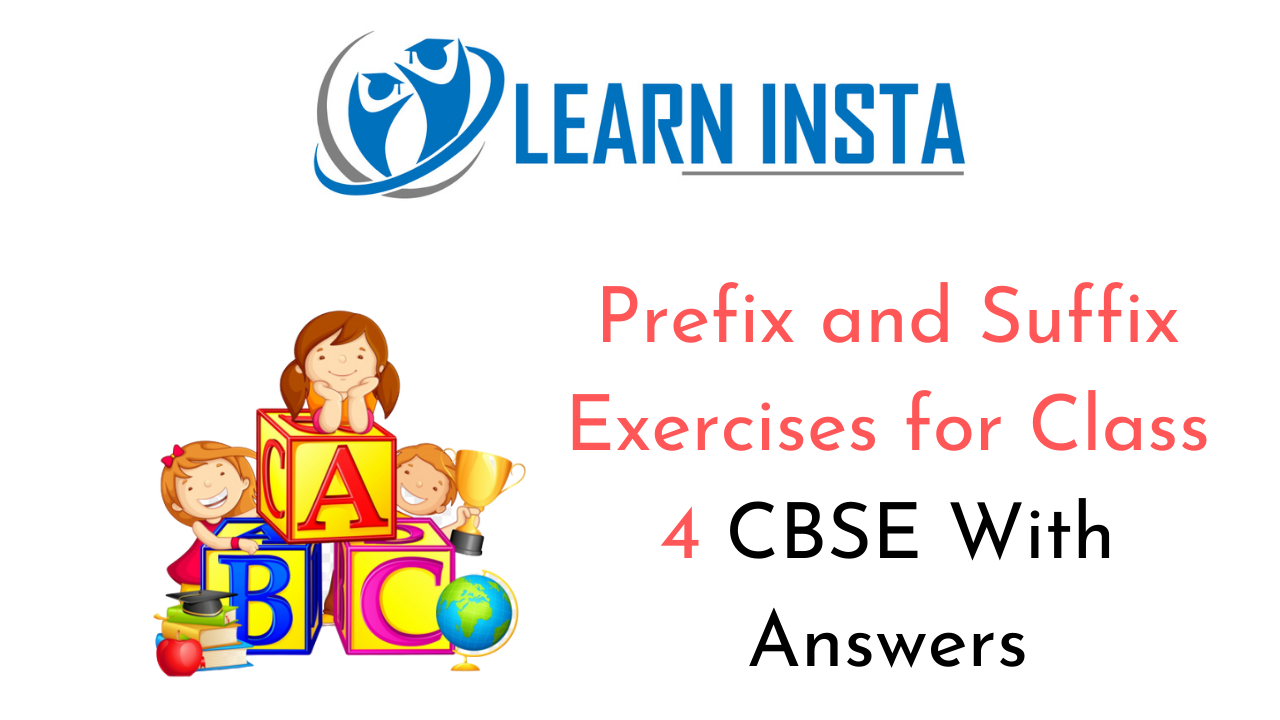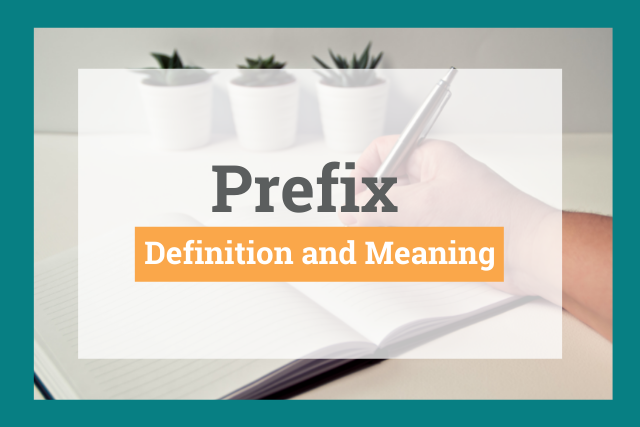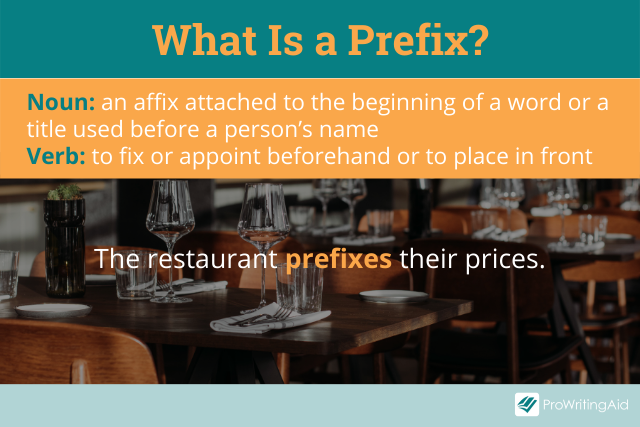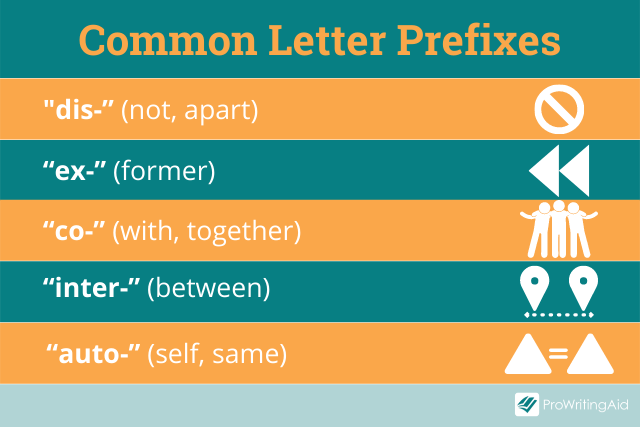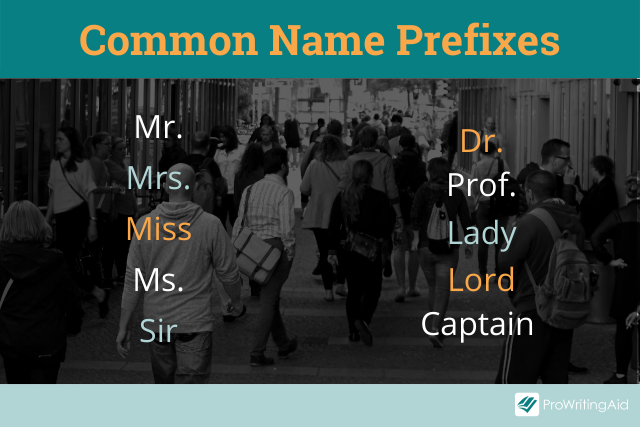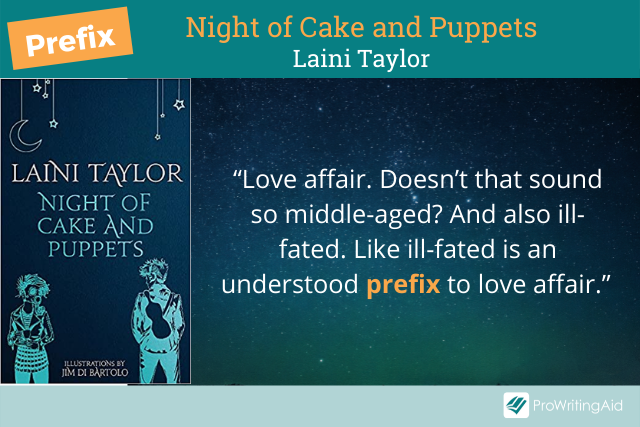Task1. Note the meanings of the 9 prefixes given below. Make new words with given prefixes. Decide on the part of speech for each of the words. Then work out the approximate meaning or the words that follow before checking their meanings in a good dictionary:
over=too much co=together en=make
under= too little il, in, im, ir, un=not.
dose-___________________________
shadow__________________________
privileged___________________________
habit______________________________
large________________________________
literate________________________________
measurable_____________________________
compromising_______________________________
Can you think of three more beginning with each of the prefixes listed in the exercise?
.Task2.Note the meanings of the 5 prefixes given in the box bellow. Make new words with given prefixes.Dicide on the part of speech for each of the words. Then work out the approximate meaning of the words that follow before checking their meanings in a good dictionary:
action_____________________________
planery_____________________________
historic______________________________
going_________________________________
humorous_______________________________
consider___________________________________
colonise__________________________________
Can you think three more words beginning with each of prefixes listed in the exercise?
Task 3 . Note the meanings of the 5 prefixes given in the box below. Make new words with given prefixes .decide on the part of speech for each of the words. Then work out the approximate meaning of the words that follow before checking their meanings in good dictionary:
trans= across, to the other side dis= causes the action to be reversed anti
counter= against, in opposition to mis= in the wrong manner
continental_____________________________
clockwise________________________________
balance__________________________________
count____________________________________
reputable___________________________________
handle______________________________________
understanding___________________________________
Can you think of three more words beginning with each of the prefixes listed in the exercise?
Task 4
In each sentence one word needs the addition of a prefix to give meaning to the sentence.
Identify the words which need prefixes and them.
-
Known as Saint Nicholas in Germany, Santa Claus was usually accompanied by Black peter, an elf, who punished____________ obedient children.
-
Unemployment and costs have to ______________ acceptable levels.
-
If he has his opinions on a subject, he is ____________ moveable.
-
She headed back home and left her mission______________ accomplished.
-
She is rather _______________ trustful person to strangers.
-
It was an ___________ mistakable step of his: he had own.
-
It was ________________ rational to react in that manner.
-
It is ________________ legal to drive while intoxicated.
-
It was _____________ modest of them to say that.
-
He had made progress that was previously____________ achievable.
-
It would be ____________ accurate to say that she has been dismissed.
-
He left a growing ______________ satisfaction with himself and his position.
-
It is a _____________ alcoholic drink.
-
You were ___________ attentive at the lecture, that’s why you didn’t understand anything.
-
The great Himalayan region is one of the few remaining isolated and ____________ accessible areas in the world today.
Task 5 In each sentence one word needs the addition of a prefix to give meaning to the sentence. Identify the words which need prefixes and them.
-
He never phones his friends or goes out any more: he’s becoming really social.________________
-
With 600 billion people, the country faces population.__________________________
-
Don’t you think it was very responsible to leave a six-year-old alone in the house?________________
-
There are too many mistakes in this essay: I’m afraid you’ll have to write it.________________-
-
He added a script to his letter to say that he received her check.___________________________
-
I think I have done the steaks: they’re very tough._________________________________
-
Drugs are legal in almost every country on earth.___________________________________
Task 6 in each sentence the word in capital letters needs the additions of prefix to give meaning.
I have decided to write my 1 _________________ -Biography! Now, you may think at 25 that I am too2_______________- MATURE to embark upon such an ambitious project but I think age is completely 3__________________ RELEVANT. Anyway, I’m sure that my literary abilities will allow me to 4____________ COME that hurdle only too easy. It will be written in a form of a 5______________ LOGUE in which I tell the world about some of the 6 ______________ BELIEVABLY interesting events in my life so far. I also intend to clear up some very common and totally 7 _______________ LOGICAL 8_____________ CONSEPTIONS about the 9____________NATURAL and finally convince people that all those pseudo-intellectuals at universities have got it all wrong. Being my friend, I hope you will buy a copy or it would be extremely 10_______________ LOYAL not to do so, after all.
Task 7 Complete this chart using the prefixes in the box to make the opposites of the adjectives and verbs given.
|
In- im- un- mis- dis- |
|
Adjective/ Verb |
Opposite |
|
active |
1____________________ |
|
secure |
2 |
|
capable |
3 |
|
experienced |
4 |
|
possible |
5 |
|
fortunate |
6 |
|
conscious |
7 |
|
healthy |
8 |
|
understand |
9 |
|
calculate |
10 |
|
approve |
11 |
|
obey |
12 |
Task 8 Form nouns from the given words with the help of the prefixes with the opposite meaning.
Example: employment- unemployment
honesty-____________________
difference-______________________
fortune-________________________
understanding-_______________________
dependence-_________________________
importance-__________________________
security-___________________________
expensive-_________________________
obedience-__________________________
population-__________________________
alcoholic-__________
___________________
Task 9 Supply the right adjectival forms.
Example: I suspect he isn’t honest. In fact he’s quite dishonest
-
This arrangement isn’t strictly legal. Some people would regard it is _________________
-
Sometimes she doesn’t behave in a responsible manner. She’s quite___________________
-
Such a situation is barely imaginable. It is quite_____________________________________
-
Bob’s not very capable. He’s ____________________ of making sound decisions.
-
This fish hasn’t been cooked enough. It’s _________________________________________
-
This scheme isn’t very practical. In fact, it’s quite_____________________________________
-
This dates from before the war. It’s_______________________________________________
Task 10. Form adjectives from the given ones with the help of the prefixes and point out the changes in meaning.
Example: practical- impractical
possible__________________
urban______________________
appointing_____________________
conscious _______________________
informed__________________________
accurate___________________________
believable___________________________
acceptable_____________________________
legal_________________________________
able_________________________________
complete______________________________
married________________________________
bearable_______________________________
successful______________________________
calculation_____________________________
approval________________________________
measurable______________________________
expensive________________________________
modest___________________________________
Keys.
Task 1. Possible answers: overdose, overshadow, underprivileged, cohabit, illiterate, immeasurable, uncompromising
Task2. Possible answers: interaction, interplanetary, prehistoric, foregoing, posthumous, reconsider, recolonise
Task3. Possible answers: transcontinental, anticlockwise, counterbalance, discount, disreputable, mishandle, misunderstanding
Task4. Possible answers: 1. disobedient, 2. unacceptable, 3 immovable, 4 unaccomplished, 5distruthful, 6. Unmistaken, 7. Irrational, 8. Illegal, 9. Immodest, 10.u,nachievable 11.unaccurate, 12.dissatisfaction
13 non-alcoholic,14 inattentive, 15 inaccessible
Task 5. 1 anti-social, 2. over-population, 3. irresponsible, 4. rewrite, 5. postscript, 6. overdone, 7 illegal
Task6 1. AUTOBIOGRAPHY, 2. IMMATURE, 3. IRRELEVANT, 4 OVERCOME, 5. MONOLOGUE/DIALOGUE
6. UNBELIEVABLY, 7 ILLOGICAL, 8. MISCONSEPTIONS, 9. SUPERNATURAL, 10. DISLOYAL
Task7 .1 inactive, 2 insecure, 3 incapable, 4 inexperienced, 5 Impossible, 6 unfortunate, 7 unconscious, 8 unhealthy, 9 misunderstand, 10 miscalculate, 11 disapprove, 12 disobey
Task8 dishonesty, indifference, misfortune, misunderstanding, independence, unimportance, insecurity, inexpensive, disobedience, overpopulation, non-alcoholic
Task9 illegal, irresponsible, unimaginable, incapable, uncooked, impractical, pre-war
Task10 impossible, interurban, disappointing, unconscious, unavailable, misinformed, inaccurate, unbelievable, unacceptable, illegal, unable, incomplete, unmarried, unbearable, unsuccessful, miscalculation, disapproval, immeasurable, inexpensive
This grammar section explains English Grammar in a clear and simple way. There are example sentences to show how the language is used.
A prefix is a letter or a group of letters that appears at the beginning of a word and changes the word’s original meaning.
An easy example would be the word ‘prefix’ itself! It begins with the prefix pre-( which means ‘before’.
Some prefix words are as follows.
| Prefix | Meaning | Example |
| Dis- | Not | Dislike |
| Im- | Not | Impossible |
| In- | Not | Inactive |
| Mis | Incorrectly | Mis-understood |
| Pre | Before | Prepay |
| Re | Again | Redo |
| Un | Not | Untied |
Prefix and Suffix Exercises with Answers for Grade 4 CBSE PDF
A. Add a prefix to each word in brackets to complete the sentences.
1. Rita was ___________ to visit her friend because she had a lot of homework to do. (able)
2. Thomas’ teacher told him to ___________ his essay, (write)
3. He had spelled dozens of words ___________. (correctly)
4. Mrs. Saluja was ___________ with the low Social Studies test scores, (happy)
5. Christian ___________ his jacket when he came inside the house. (buttoned)
6. Please help you mother ___________ the groceries from the car. (load)
B. Write a single word with dis- or un- as a prefix to complete each sentence.
1. My shoe is ___________. (not tied)
2. Sumit ___________ with Amit. (does not agree)
3. Anne is ___________ to beat me in the video game, (not able)
4. Mohit ___________ his parents, (does not obey)
5. Mrs. Mathur said that she did not want ___________ works to be handed in. (not finished)
C. Write single words with prefix having the same meaning as the words given below.
Example:
to pay back – repay
1. not polite – ___________
2. charge again – ___________
3. not safe – ___________
4. spell wrong – ___________
5. behave badly – ___________
6. tie again – ___________
D. Highlight the prefix in each word. Then write a definition for each word.
Example:
refill – to fill again
1. unusual – ______________________
2. misunderstand – ______________________
3. reheat – ______________________
4. preview – ______________________
Suffix Exercises for Grade 4
A suffix is a letter or a group of letters that is added at the end of a word.
Depending on whether it is a noun, verb, adjective or adverb, a different suffix would be required. For example, the verb ‘read’ can be altered to become the noun ‘reader’ by adding the suffix- ‘er’. The same verb can also be turned into the adjective ‘readable’ by adding the suffix- ‘able’.
Prefixes and Suffixes Exercises with Answers Pdf Grade 4 CBSE PDF
A. Write a single word with -ful or -less to complete each sentence.
1. I am ___________ to have such a loving parents, (full of thanks)
2. Sahilsawa ___________ cat wandering around town, (without a home)
3. Reena, you look ___________ in that dress, (full of beauty)
4. The squirrels in the backyard are ___________. (without harm)
5. Did you see the ___________ rainbow in the sky? (full of colour)
B. Unscramble the letters in brackets to make a word with a suffix. Write the word on the line next to each sentence. Be sure each word is spelled correctly.
1. Sandy likes to draw and paint pictures. He is an ___________ (i t r a t s)
2. Sara travels around the world. She is a ___________ ( a e r v r t e I)
3. Gagan won the contest. He is the ___________ ( n e w r n i)
4. Sunny Deol is a movie star. He is an ___________ ( c o a r t)
5. Anjali enjoys reading novels. She is an avid ___________ ( e a r r d e )
6. Reena just got a license to operate a car. She is a safe ___________ (r v e d r i)
7. Dr. Paul studies science. He is a ___________ ( c n e s s i i 11)
8. Ms. Pooja arranges flowers for a living. She is a ___________ (r i t f s I o )
9. Rehaan plays the piano. He is a ___________ (i i p n a t s )
C. Add the correct suffix (-tion,-sion,-ment) to each verb to make a noun.
Educate ___________ Subtract ___________ Persuade ___________
Protect ___________ Decide ___________ Suggest ___________
Ship ___________ Pay ___________ Amuse ___________
Prefix is an English word with many meanings.
This article will explain what the word prefix means, where it originates from, and how to use it in a sentence.
Prefix Definition
According to the Merriam-Webster Dictionary, prefix can be a noun or a verb.
As a noun, it can mean “a group of words placed at the beginning of a word to create a new word” or “a title used before a person’s name.”
As a verb, it can mean “to fix or appoint beforehand” or “to place in front.”
Prefix Meaning
Let’s take a closer look at what each of these definitions means.
Prefix as a Noun
As a noun, prefix most commonly refers to a letter or group of letters that you attach before a root word in order to form a new word.
Common prefixes in English include:
- micro- (which adds the meaning “small” to an adjective)
- co- (which adds the meaning “together” to a verb)
- anti- (which adds the meaning “opposite” or “against” to a noun)
Many prefixes in English come from Greek and Latin, so studying these languages can help you understand how English words are put together.
The opposite of a prefix is a suffix, which is a group of letters that you attach to the end of a word
- -er (which adds the meaning “more” to an adjective)
- -est (which adds the meaning “most” to an adjective)
- -ness (which turns an adjective into a noun)
We also use prefix to describe the title you put before someone’s name. For example, Mr., Mrs., and Dr. are all common prefixes.
Finally, we sometimes use prefix to refer to telephone numbers. In this context, prefix refers to the first set of digits after the country and area codes.
Here are some examples of the noun prefix used in a sentence:
- Adding the prefix “un” to a word can transform the word into the opposite of what it would normally mean, such as when you say someone is “unkind” instead of “kind.”
- “Pro” is a prefix that shows your support for a certain cause, such as when you say you’re “pro-suffrage.”
- “Do you prefer the prefix Miss, Ms. or Mrs.?”
Prefix as a Verb
As a verb, the basic meaning of prefix is “to place at the beginning.” For example, you might prefix a fancy title to your name if you want to impress everyone, which means you add a title like “Dr.” or “His Royal Highness” to the beginning of your name.
The verb prefix can also mean “to determine beforehand.” A restaurant might prefix the price of their menu for a special holiday, which means they charge a predetermined price regardless of which dishes you order.
Similarly, a taxi company might prefix the rate for a ride to and from the airport, which means they charge a predetermined fee regardless of how far you go.
Here are some other examples of the verb prefix used in a sentence:
- She likes to prefix the word “literally” to almost everything she says.
- This company prefixes the prices for the different services they offer.
- I suspect that the corrupt mayor might have prefixed the winner of the last election.
Examples of Prefix in a Sentence
Let’s look at some examples of the word prefix in successful books.
“Our citizens must act as Americans; not as Americans with a prefix and qualifications; not as Irish-Americans, German-Americans, native Americans—but as Americans pure and simple.”—The Joy of Life by Mary Beth Smith
“He had just reached the time of life at which ‘young’ is ceasing to be the prefix of ‘man’ in speaking of one. He was at the brightest period of masculine life, for his intellect and emotions were clearly separate; he had passed the time during which the influence of youth indiscriminately mingles them in the character of impulse, and he had not yet arrived at the state wherein they become united again, in the character of prejudice, by the influence of a wife and family. In short, he was twenty-eight and a bachelor.”—Far From the Madding Crowd by Thomas Hardy
“All languages that derive from Latin form the word ‘compassion’ by combining the prefix meaning ‘with’ (com-) and the root meaning ‘suffering’ (Late Latin, passio). In other languages, Czech, Polish, German, and Swedish, for instance—this word is translated by a noun formed of an equivalent prefix combined with the word that means ‘feeling.’”—The Unbearable Lightness of Being by Milan Kundera
“One could prefix the words ‘deranged lunatic insists’ to any headline, and only increase its accuracy. It’s practically implied, and the reading public would hardly read the little phrase as a disclaimer these days.”—The Damned Highway by Brian Keene and Nick Mamatas
“If you choose to say, ‘God can give a creature free will and at the same time withhold free will from it,’ you have not succeeded in saying anything about God: meaningless combinations of words do not suddenly acquire meaning simply because we prefix to them the two other words, ‘God can.’ It remains true that all things are possible with God: the intrinsic impossibilities are not things but nonentities.”—The Problem of Pain by C.S. Lewis
“Love affair. Doesn’t that sound so middle-aged? And also ill-fated. Like ill-fated is an understood prefix to love affair.”—Night of Cake and Puppets by Laini Taylor
“An alliterative prefix served as an ornament of oratory.”—The Picture of Dorian Gray by Oscar Wilde
Origin of the Word Prefix
The word prefix was first used in the 16th century. It stems from the Latin word praefixum, meaning “fix in front, fasten on before.” This word is the combination of the Latin roots fix (meaning “attach”) and pre- (meaning “before”).
Now you know what “prefix” means and how to use this word in your own writing.
Take your writing to the next level:
20 Editing Tips from Professional Writers
Whether you are writing a novel, essay, article, or email, good writing is an essential part of communicating your ideas.
This guide contains the 20 most important writing tips and techniques from a wide range of professional writers.

Definition of Prefix
a partial word or number affixed to the beginning of a word or number to either complete the word or alter the meaning
Examples of Prefix in a sentence
Often the prefix “un” is used to transform a word into its opposite meaning, like well and unwell.
🔊
Attaching the prefix “anti” to the beginning of a word conveys strong opposition to the subject.
🔊
You can change the meaning of almost every word to its opposite by adding the prefix “un”; attractive/unattractive, happy/unhappy.
🔊
In order to make an international phone call, first you must know the country or area code, and then the prefix or three numbers immediately after.
🔊
“Pro” and “anti” are commonly used in political debates as a prefix to state a position for or against a specific subject.
🔊
Other words in the Grammar & English Usage category:
Most Searched Words (with Video)
Learning Objectives
- Identify the meanings of common prefixes.
- Become familiar with common suffix rules.
The English language contains an enormous and ever-growing number of words. Enhancing your vocabulary by learning new words can seem overwhelming, but if you know the common prefixes and suffixes of English, you will understand many more words.
Mastering common prefixes and suffixes is like learning a code. Once you crack the code, you can not only spell words more correctly but also recognize and perhaps even define unfamiliar words.
Prefixes
A prefixA word part added to the beginning of a word to create a new meaning. is a word part added to the beginning of a word to create a new meaning. Study the common prefixes in Table 4.2 «Common Prefixes».
Tip
The main rule to remember when adding a prefix to a word is not to add letters or leave out any letters. See Table 4.2 «Common Prefixes» for examples of this rule.
Table 4.2 Common Prefixes
| Prefix | Meaning | Example |
|---|---|---|
| dis | not, opposite of | dis + satisfied = dissatisfied |
| mis | wrongly | mis + spell = misspell |
| un | not | un + acceptable = unacceptable |
| re | again | re + election = reelection |
| inter | between | inter + related = interrelated |
| pre | before | pre + pay = prepay |
| non | not | non + sense = nonsense |
| super | above | super + script = superscript |
| sub | under | sub + merge = submerge |
| anti | against, opposing | anti + bacterial = antibacterial |
Exercise 1
Identify the five words with prefixes in the following paragraph, and write their meanings on a separate sheet of paper.
At first, I thought one of my fuzzy, orange socks disappeared in the dryer, but I could not find it in there. Because it was my favorite pair, nothing was going to prevent me from finding that sock. I looked all around my bedroom, under the bed, on top of the bed, and in my closet, but I still could not find it. I did not know that I would discover the answer just as I gave up my search. As I sat down on the couch in the family room, my Dad was reclining on his chair. I laughed when I saw that one of his feet was orange and the other blue! I forgot that he was color-blind. Next time he does laundry I will have to supervise him while he folds the socks so that he does not accidentally take one of mine!
Collaboration
Please share with a classmate and compare your answers.
Exercise 2
Add the correct prefix to the word to complete each sentence. Write the word on your own sheet of paper.
- I wanted to ease my stomach ________comfort, so I drank some ginger root tea.
- Lenny looked funny in his ________matched shirt and pants.
- Penelope felt ________glamorous at the party because she was the only one not wearing a dress.
- My mother said those ________aging creams do not work, so I should not waste my money on them.
- The child’s ________standard performance on the test alarmed his parents.
- When my sister first saw the meteor, she thought it was a ________natural phenomenon.
- Even though she got an excellent job offer, Cherie did not want to ________locate to a different country.
- With a small class size, the students get to ________act with the teacher more frequently.
- I slipped on the ice because I did not heed the ________cautions about watching my step.
- A ________combatant is another word for civilian.
Suffixes
A suffixA word part added to the end of a word to create a new meaning. is a word part added to the end of a word to create a new meaning. Study the suffix rules in the following boxes.
Rule 1
When adding the suffixes —ness and —ly to a word, the spelling of the word does not change.
Examples:
- dark + ness = darkness
- scholar + ly = scholarly
Exceptions to Rule 1
When the word ends in y, change the y to i before adding —ness and —ly.
Examples:
- ready + ly = readily
- happy + ness = happiness
Rule 2
When the suffix begins with a vowel, drop the silent e in the root word.
Examples:
- care + ing = caring
- use + able = usable
Exceptions to Rule 2
When the word ends in ce or ge, keep the silent e if the suffix begins with a or o.
Examples:
- replace + able = replaceable
- courage + ous = courageous
Rule 3
When the suffix begins with a consonant, keep the silent e in the original word.
Examples:
- care + ful = careful
- care + less = careless
Exceptions to Rule 3
Examples:
- true + ly = truly
- argue + ment = argument
Rule 4
When the word ends in a consonant plus y, change the y to i before any suffix not beginning with i.
Examples:
- sunny + er = sunnier
- hurry + ing = hurrying
Rule 5
When the suffix begins with a vowel, double the final consonant only if (1) the word has only one syllable or is accented on the last syllable and (2) the word ends in a single vowel followed by a single consonant.
Examples:
- tan + ing = tanning (one syllable word)
- regret + ing = regretting (The accent is on the last syllable; the word ends in a single vowel followed by a single consonant.)
- cancel + ed = canceled (The accent is not on the last syllable.)
- prefer + ed = preferred
Exercise 3
On your own sheet of paper, write correctly the forms of the words with their suffixes.
- refer + ed
- refer + ence
- mope + ing
- approve + al
- green + ness
- benefit + ed
- resubmit + ing
- use + age
- greedy + ly
- excite + ment
Key Takeaways
- A prefix is a word part added to the beginning of a word that changes the word’s meaning.
- A suffix is a word part added to the end of a word that changes the word’s meaning.
- Learning the meanings of prefixes and suffixes will help expand your vocabulary, which will help improve your writing.
Writing Application
Write a paragraph describing one of your life goals. Include five words with prefixes and five words with suffixes. Exchange papers with a classmate and circle the prefixes and suffixes in your classmate’s paper. Correct each prefix or suffix that is spelled incorrectly.
1. Car insurance policies have the prefix MC .
2. Un- is a productive prefix.
3. To telephone from the US use the prefix 011 33 before the numbers given here.
4. The prefix mono is often dropped.
5. Following pruning, the prefix with the consequent highest likelihood is expanded, producing a new prefix.
6. The various lines of dancers took the prefix of the cinema building they were appearing in.
7. Prefix changes Telephone customers with these prefixes have been switched to the new 760 area code.
8. Answer: a. Why: Use hyphens with a prefix and a proper noun.
9. These include code reduction functions, prefix and suffix operations,[http://Sentencedict.com] scatter operations and data sorting.
10. Fill in each blank with a proper negative prefix.
11. The prefix must not contain a tab character.
12. The third prefix locates top left corner.
13. Display the current shared library prefix.
14. MIL Prefix designation for U. S Military Specifications.
15. This is the prefix version of the decrement operator.
16. The first form is a prefix increment operation.
17. The work kilo is often used as a prefix.
18. Explain the difference between prefix and postfix increment.
19. The default prefix used is EXPR.
20. Options: Interval, delay, replacement character, prefix, debug mode.
21. Lisp uses the distinct S-expressions or prefix notation.
22. The first form is a prefix decrement operation.
23. Generates an alternate prefix for the attribute.
24. Prefix Label in an Editor Window.
25. The combined length of message plus prefix can be at most 254 characters. The prefix must not contain a tab character.
26. The ANCC shall encode the company prefix in accordance with relevant state standard.
27. In the word » unimportant » , » un — » is a prefix.
28. Confusion is avoided by using the term luminescence, and specifying the activating energy as a descriptive prefix.
29. He will be astounded by the place names beginning with the three letters of each prefix.
30. So long as the correct conditions are satisfied any currency can be used with the prefix Euro.
Learning Objectives
- Identify the meanings of common prefixes.
- Become familiar with common suffix rules.
The English language contains an enormous and ever-growing number of words. Enhancing your vocabulary by learning new words can seem overwhelming, but if you know the common prefixes and suffixes of English, you will understand many more words.
Mastering common prefixes and suffixes is like learning a code. Once you crack the code, you can not only spell words more correctly but also recognize and perhaps even define unfamiliar words.
Prefixes
A prefix is a word part added to the beginning of a word to create a new meaning. Study the common prefixes in Table 4.2 “Common Prefixes”.
Tip
The main rule to remember when adding a prefix to a word is not to add letters or leave out any letters. See Table 4.2 “Common Prefixes” for examples of this rule.
Table 4.2 Common Prefixes
| Prefix | Meaning | Example |
|---|---|---|
| dis | not, opposite of | dis + satisfied = dissatisfied |
| mis | wrongly | mis + spell = misspell |
| un | not | un + acceptable = unacceptable |
| re | again | re + election = reelection |
| inter | between | inter + related = interrelated |
| pre | before | pre + pay = prepay |
| non | not | non + sense = nonsense |
| super | above | super + script = superscript |
| sub | under | sub + merge = submerge |
| anti | against, opposing | anti + bacterial = antibacterial |
Exercise 1
Identify the five words with prefixes in the following paragraph, and write their meanings on a separate sheet of paper.
At first, I thought one of my fuzzy, orange socks disappeared in the dryer, but I could not find it in there. Because it was my favorite pair, nothing was going to prevent me from finding that sock. I looked all around my bedroom, under the bed, on top of the bed, and in my closet, but I still could not find it. I did not know that I would discover the answer just as I gave up my search. As I sat down on the couch in the family room, my Dad was reclining on his chair. I laughed when I saw that one of his feet was orange and the other blue! I forgot that he was color-blind. Next time he does laundry I will have to supervise him while he folds the socks so that he does not accidentally take one of mine!
Collaboration
Please share with a classmate and compare your answers.
Exercise 2
Add the correct prefix to the word to complete each sentence. Write the word on your own sheet of paper.
- I wanted to ease my stomach ________comfort, so I drank some ginger root tea.
- Lenny looked funny in his ________matched shirt and pants.
- Penelope felt ________glamorous at the party because she was the only one not wearing a dress.
- My mother said those ________aging creams do not work, so I should not waste my money on them.
- The child’s ________standard performance on the test alarmed his parents.
- When my sister first saw the meteor, she thought it was a ________natural phenomenon.
- Even though she got an excellent job offer, Cherie did not want to ________locate to a different country.
- With a small class size, the students get to ________act with the teacher more frequently.
- I slipped on the ice because I did not heed the ________cautions about watching my step.
- A ________combatant is another word for civilian.
Suffixes
A suffix is a word part added to the end of a word to create a new meaning. Study the suffix rules in the following boxes.
Rule 1
When adding the suffixes –ness and –ly to a word, the spelling of the word does not change.
Examples:
- dark + ness = darkness
- scholar + ly = scholarly
Exceptions to Rule 1
When the word ends in y, change the y to i before adding –ness and –ly.
Examples:
- ready + ly = readily
- happy + ness = happiness
Rule 2
When the suffix begins with a vowel, drop the silent e in the root word.
Examples:
- care + ing = caring
- use + able = usable
Exceptions to Rule 2
When the word ends in ce or ge, keep the silent e if the suffix begins with a or o.
Examples:
- replace + able = replaceable
- courage + ous = courageous
Rule 3
When the suffix begins with a consonant, keep the silent e in the original word.
Examples:
- care + ful = careful
- care + less = careless
Exceptions to Rule 3
Examples:
- true + ly = truly
- argue + ment = argument
Rule 4
When the word ends in a consonant plus y, change the y to i before any suffix not beginning with i.
Examples:
- sunny + er = sunnier
- hurry + ing = hurrying
Rule 5
When the suffix begins with a vowel, double the final consonant only if (1) the word has only one syllable or is accented on the last syllable and (2) the word ends in a single vowel followed by a single consonant.
Examples:
- tan + ing = tanning (one syllable word)
- regret + ing = regretting (The accent is on the last syllable; the word ends in a single vowel followed by a single consonant.)
- cancel + ed = canceled (The accent is not on the last syllable.)
- prefer + ed = preferred
Exercise 3
On your own sheet of paper, write correctly the forms of the words with their suffixes.
- refer + ed
- refer + ence
- mope + ing
- approve + al
- green + ness
- benefit + ed
- resubmit + ing
- use + age
- greedy + ly
- excite + ment
Key Takeaways
- A prefix is a word part added to the beginning of a word that changes the word’s meaning.
- A suffix is a word part added to the end of a word that changes the word’s meaning.
- Learning the meanings of prefixes and suffixes will help expand your vocabulary, which will help improve your writing.
Writing Application
Write a paragraph describing one of your life goals. Include five words with prefixes and five words with suffixes. Exchange papers with a classmate and circle the prefixes and suffixes in your classmate’s paper. Correct each prefix or suffix that is spelled incorrectly.

